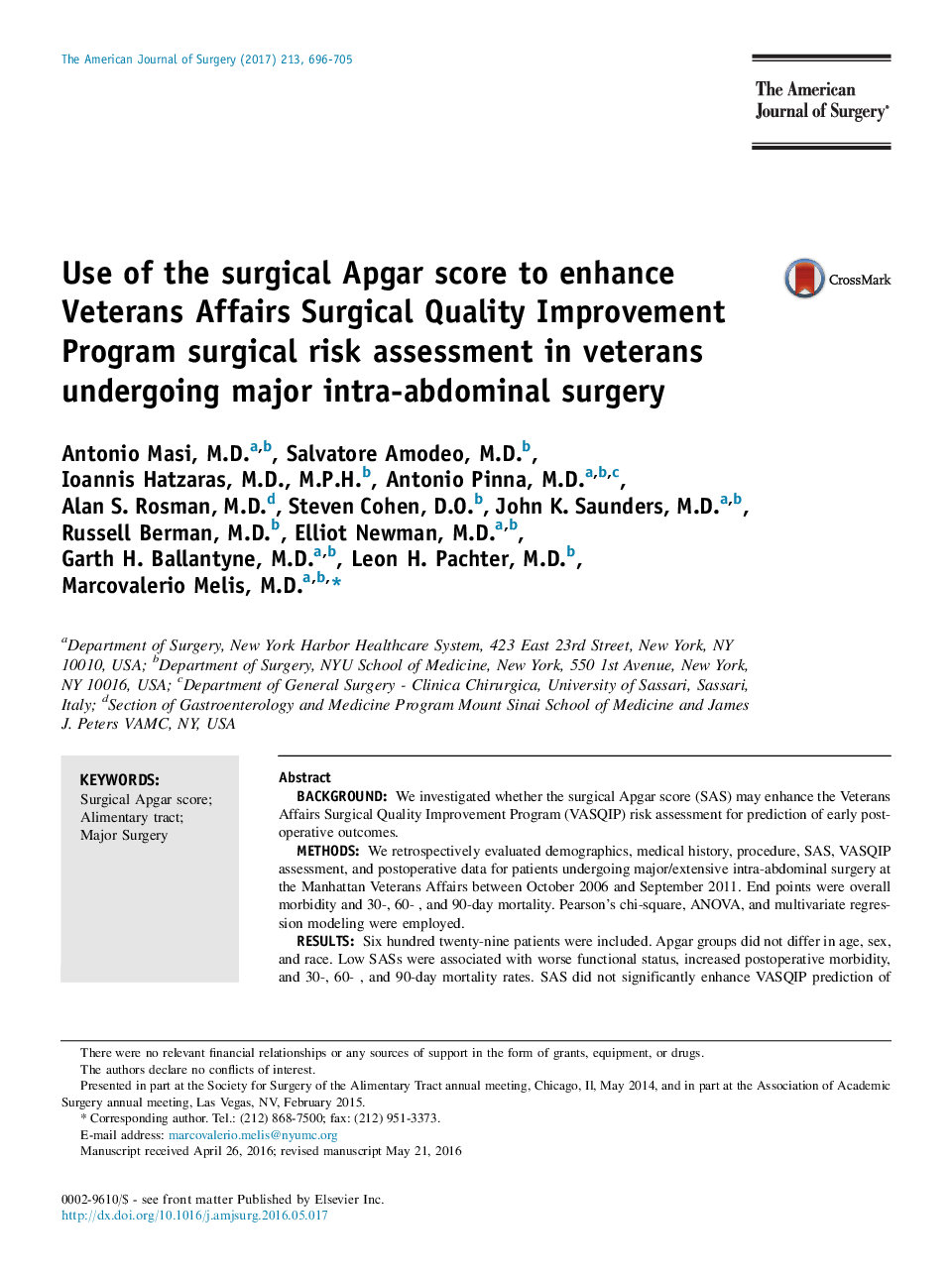| Article ID | Journal | Published Year | Pages | File Type |
|---|---|---|---|---|
| 5731299 | The American Journal of Surgery | 2017 | 10 Pages |
â¢Surgical Apgar score (SAS) effectively identifies veterans at risk following major intra-abdominal surgery.â¢Overall morbidity and 30-, 60- and 90-day mortality are predicted by SAS.â¢SAS does not significantly enhance VASQIP prediction of postoperative outcomes.
BackgroundWe investigated whether the surgical Apgar score (SAS) may enhance the Veterans Affairs Surgical Quality Improvement Program (VASQIP) risk assessment for prediction of early postoperative outcomes.MethodsWe retrospectively evaluated demographics, medical history, procedure, SAS, VASQIP assessment, and postoperative data for patients undergoing major/extensive intra-abdominal surgery at the Manhattan Veterans Affairs between October 2006 and September 2011. End points were overall morbidity and 30-, 60- , and 90-day mortality. Pearson's chi-square, ANOVA, and multivariate regression modeling were employed.ResultsSix hundred twenty-nine patients were included. Apgar groups did not differ in age, sex, and race. Low SASs were associated with worse functional status, increased postoperative morbidity, and 30-, 60- , and 90-day mortality rates. SAS did not significantly enhance VASQIP prediction of postoperative outcomes, although a trend was detected. Multivariate analysis confirmed SAS as an independent predictor of morbidity and mortality.ConclusionsSAS effectively identifies veterans at high risk for poor postoperative outcome. Additional studies are necessary to evaluate the role of SAS in enhancing VASQIP risk prediction.
